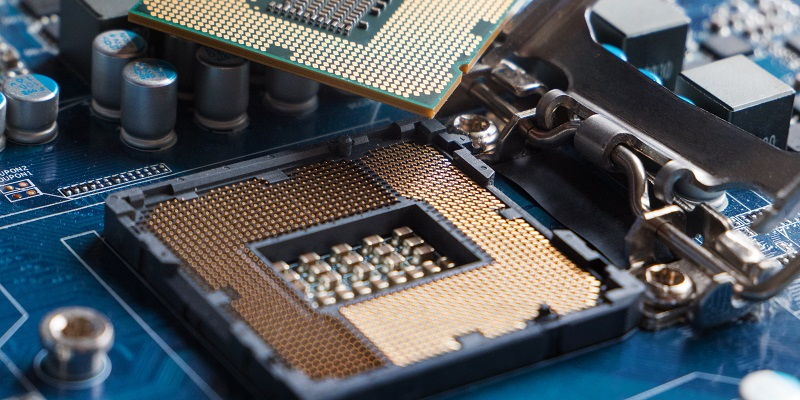As technology advances, the demand for high-performance computing solutions continues to rise. With that in mind, AMD’s EPYC Genoa-X CPUs promise to deliver exceptional performance for cache-sensitive workloads, thanks to the use of stacked cache technology.
In this article, we’ll take a closer look at the details of the AMD EPYC Genoa-X CPUs, their performance capabilities, and availability with leading partners.
Details of the AMD EPYC Genoa-X CPUs
The EPYC Genoa-X CPUs are designed to handle the most demanding workloads, with a total of 12 Zen 4 CCDs and a single I/O die. This configuration enables the CPUs to deliver exceptional performance while efficiently managing thermal performance.
Each of the Zen 4 CCDs features a 3D V-cache stack, with up to 64 MB of L3 cache. This design ensures that the CPU can handle even the most complex data-intensive workloads effectively.
At the top end of the range, the EPYC 9684X offers a staggering 96 cores and 1152 MB of L3 cache, making it an ideal choice for the most demanding applications. However, all chips are optimized for cache-dependent workloads, leveraging AMD’s stacked cache technology.
Performance Comparison between Intel’s 4th Gen Xeon 8490H and EPYC 9384X
One of the essential considerations when choosing a high-performance computing solution is how it performs against competitor systems. Upon testing, the AMD EPYC Genoa-X CPUs deliver impressive results.
For example, the Genoa-X chip delivers a performance gain of up to 2.9x compared to Intel’s 4th Gen Xeon 8490H with 60 cores. Similarly, an EPYC 9384X offers up to a 2.0x gain within the same workloads, thanks to the use of stacked cache technology.
This outstanding performance ensures that the AMD EPYC Genoa-X CPUs are well-suited to handle any data-intensive task.
Availability and partnerships
AMD has already partnered with leading technology companies, including Dell Technologies, HPE, Lenovo, and Supermicro, to offer EPYC Genoa-X CPUs to enterprise customers. This ensures that businesses can leverage the power of these high-performing CPUs to improve their workflows.
In addition, VMs powered by Genoa-X CPUs are now available on Microsoft Azure as part of HBv4 and HX systems. These VMs deliver up to a 5x performance gain compared to the previous-gen HBv3 instances and can scale to hundreds of thousands of CPUs to meet any large-scale computing demand.
The AMD EPYC Genoa-X CPUs are designed to handle the most demanding workloads, delivering exceptional performance for cache-sensitive tasks. The use of stacked cache technology ensures that these CPUs can handle even the most complex data-intensive operations, making them an ideal choice for businesses looking to streamline their workflows.
With partnerships in place to offer these CPUs to enterprise customers and VMs available on Microsoft Azure, it’s clear that AMD is committed to delivering exceptional performance to businesses of all sizes.

